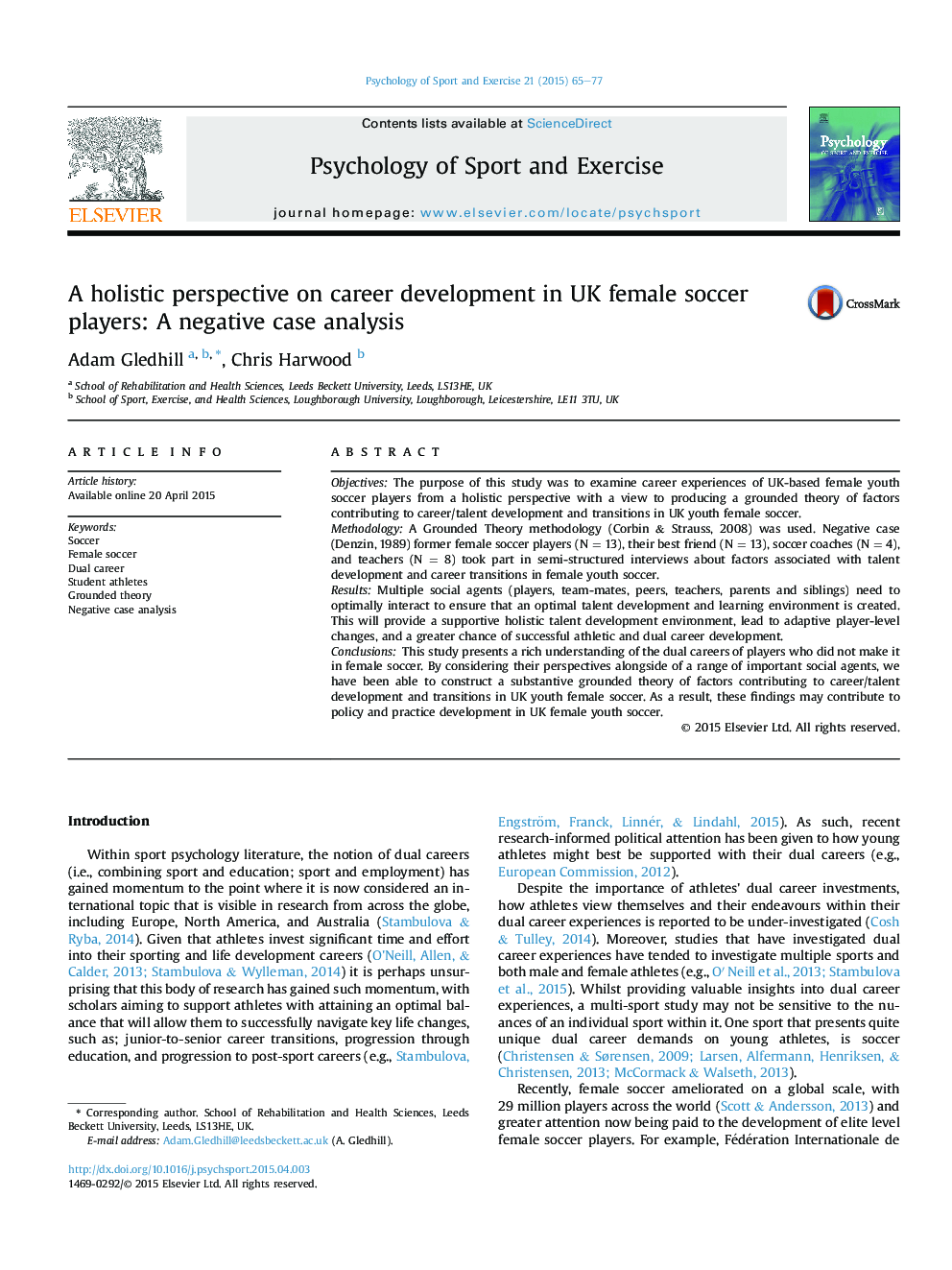| کد مقاله | کد نشریه | سال انتشار | مقاله انگلیسی | نسخه تمام متن |
|---|---|---|---|---|
| 894263 | 1472106 | 2015 | 13 صفحه PDF | دانلود رایگان |
• We developed a grounded theory of factors contributing to career/talent development and transitions in UK youth female soccer.
• Players and significant social agents must optimally interact to create an effective learning environment.
• Functionally relevant challenges at an appropriate level are necessary for player development.
• Role strain is a significant threat to talent development and career transitions in female soccer.
• Internal and external player resources must be developed for players' careers to progress.
ObjectivesThe purpose of this study was to examine career experiences of UK-based female youth soccer players from a holistic perspective with a view to producing a grounded theory of factors contributing to career/talent development and transitions in UK youth female soccer.MethodologyA Grounded Theory methodology (Corbin & Strauss, 2008) was used. Negative case (Denzin, 1989) former female soccer players (N = 13), their best friend (N = 13), soccer coaches (N = 4), and teachers (N = 8) took part in semi-structured interviews about factors associated with talent development and career transitions in female youth soccer.ResultsMultiple social agents (players, team-mates, peers, teachers, parents and siblings) need to optimally interact to ensure that an optimal talent development and learning environment is created. This will provide a supportive holistic talent development environment, lead to adaptive player-level changes, and a greater chance of successful athletic and dual career development.ConclusionsThis study presents a rich understanding of the dual careers of players who did not make it in female soccer. By considering their perspectives alongside of a range of important social agents, we have been able to construct a substantive grounded theory of factors contributing to career/talent development and transitions in UK youth female soccer. As a result, these findings may contribute to policy and practice development in UK female youth soccer.
Journal: Psychology of Sport and Exercise - Volume 21, November 2015, Pages 65–77
